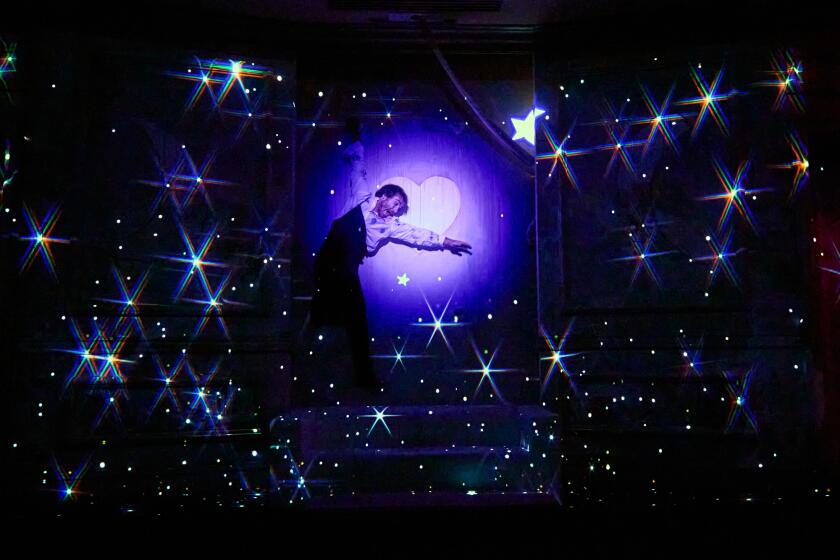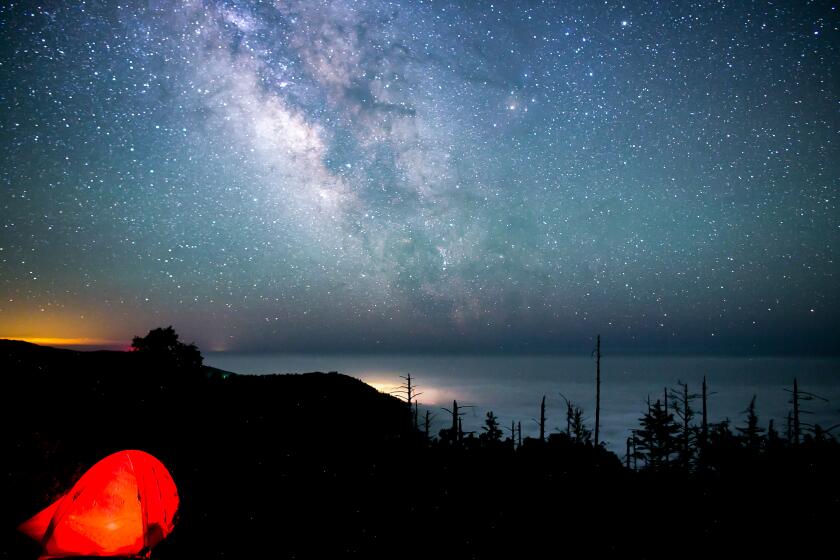Bikers End Vietnam Trip, Dispel ‘Dark Shadows of Past’
A jubilant team of American and Vietnamese veterans pulled into this city at 4:05 p.m. Friday--just five minutes behind schedule after bicycling 1,200 miles from Hanoi through a minefield of wartime memories.
Led by a police escort and seven partially paralyzed riders propelling themselves on hand cycles, the veterans, many of them disabled, arrived to a warm welcome at Reunification Hall. There, Vietnamese officials spoke of the long journey as a symbol of “pushing away the dark shadows of the past” and continuing the process of reconciliation between Vietnam and the United States.
Back when Ho Chi Minh City was Saigon, it was through the gates of Reunification Hall--then the Presidential Palace--that two North Vietnamese tanks crashed on April 30, 1975, to complete the Communist conquest of South Vietnam. One of the tanks, from Brigade 203, still stands on the neatly manicured grounds. But most of the cyclists were too tired and too caught up in the joy of completing the 16-day ride to even notice it.
Despite some spills and bruises along the way, there were no serious mishaps or injuries on the ride, which two prominent U.S. veterans joined Friday on the final 80-mile leg from Vung Tau to Ho Chi Minh City: Douglas “Pete” Peterson, the American ambassador to Vietnam who spent six years as a POW; and Sen. John F. Kerry (D-Mass.), who received three Purple Hearts and used to have a dog on his patrol boat named VC (for Viet Cong).
“I wish we could go on and on biking together,” said Hoang Minh Tuan, one of the Vietnamese riders. “This has helped us become friends, and for me, this has been a very happy time.”
No one would have disagreed. But more than a few tears were shed as the riders sped through a land of stunning vistas that they had last seen a generation ago, humping across rice paddies and over mountains with M-16 rifles and backpacks that included P-38 can openers, Zippo lighters, packets of Kool-Aid, letters from home and green ponchos that were used to carry the wounded and wrap the dead.
In a military cemetery outside Hue, the caretaker was a veteran with a missing leg. Two of the American riders took off their prosthetic legs and the three of them did a little dance together.
*
At another cemetery, Diane Evans of Northfield, Minn., a former Army nurse, wandered off and, thinking herself alone, began to cry. The arm around her shoulders startled her. The former Vietnamese soldier said in English, “The war is over.”
And at a rest stop outside Vung Tau, a man with a crude artificial leg hobbled over to the riders, collecting the uneaten food in their picnic bags. It had been his misfortune to fight for the South Vietnamese side, and, like many soldiers who had supported Saigon, he had found no job waiting when the war ended and now survives by begging.
“What really floors me,” said Rory McCarthy of Bath, Maine, “is that even when you meet people who lost six, seven members of their family in the war, they all say, ‘Let’s put that behind us.’ I keep getting the feeling the Vietnamese have done a better job coming to terms with the war than we Americans have.”
The ride, known as the Vietnam Challenge, was sponsored by World TEAM (The Exceptional Athlete Matters) Sports, a nonprofit group in Charlotte, N.C., that specializes in sports events for disabled people.
The cyclists rode as a single team and consisted of 14 Vietnamese and 39 Americans. A few, such as Greg LeMond--a Medina, Minn., resident, World TEAM board member and three-time winner of the Tour de France--were not veterans.
“About the third day out we had a meeting and talked about what we want to accomplish coming back,” said Jerry Stadtmiller of San Diego, a former Marine who lost his sight when shot in the face and who rode as the stoker on the rear of a tandem. “I said I wasn’t here to cure my blindness but to heal the scars in my heart. I think that’s happened.”
In many ways the ride from Hanoi to Ho Chi Minh City was like a battle without bullets. There were 130-mile days, narrow potholed roads, drab though welcoming hotels, intense heat and shopkeepers along the road who sold only hot bottles of Pepsi when everyone would have killed for a cold beer. But at least this was a battle that everybody won.
Sign up for The Wild
We’ll help you find the best places to hike, bike and run, as well as the perfect silent spots for meditation and yoga.
You may occasionally receive promotional content from the Los Angeles Times.



